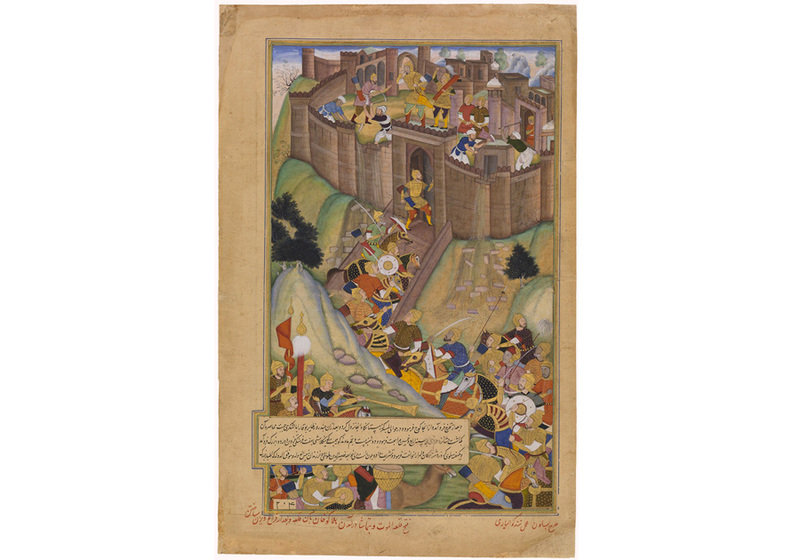The Assassins, as Crusaders called them, were an order of Nizari Ismailis, particularly those of Persia and Syria, which formed in the late 11th century. In time, the order began to pose a strong military threat to Sunni Seljuq authority within the Persian territories by capturing and inhabiting many mountain fortresses under the leadership of Hassan-i Sabbah.
A passionate devotee of Isma'ili beliefs, Hassan-i Sabbah was well-liked throughout Cairo, Syria and most of the Middle East by other Isma'ili, which led to a number of people becoming his followers. Using his fame and popularity, Sabbah founded the Order of the Assassins, whose members were taught a completely different religious and philosophical doctrine that combined the ideas of Aristotle, Zoroastrianism, Buddhism, Gnosticism and other "secret knowledge." While Sabbah motives for founding this order are ultimately unknown, it was said to be all for his own political and personal gain and to also exact vengeance on his enemies. Because of the unrest in the Holy Land caused by the Crusades, Hassan-i Sabbah found himself not only fighting for power with other Muslims, but also with the invading Christian forces.
After creating the Order, Sabbah searched for a location that would be fit for a sturdy headquarters and decided on the fortress at Alamut in what is now northwestern Iran. It is still disputed whether Sabbah built the fortress himself or if it was already built at the time of his arrival. In either case, Sabbah adapted the fortress to suit his needs not only for defense from hostile forces, but also for indoctrination of his followers. Sabbah abolished all state taxes on the territory of Alamut. Instead of the usual duties Alamut residents were obliged to build roads, dig canals and build capacity. Sabbah agents were buying rare books and manuscripts about the art of architecture, medicine, engineering, etc. After laying claim to the fortress at Alamut, Sabbah began expanding his influence outwards to nearby towns and districts, using his agents to gain political favour and to intimidate the local populations.
Spending most of his days at Alamut working on religious works and doctrines for his Order, Sabbah would never leave his fortress again in his lifetime. It is known, that Sabbah lived very modestly, led an ascetic life, setting an example for his entourage. The Lord of Alamut imposed a strict ban on any manifestation of luxury. Feasts, amusing hunting, interior decoration of houses and courtyards, expensive clothes, etc. were banned. Those limitations led to the complete destruction of the differences between the lower and higher levels of society.
As time went by, Sabbah was able to conquer new territories, to capture and convert to his faith mountainous regions of Persia, Syria, Lebanon and Iraq with their impregnable castles and fortresses. That led to creating the Nizari state.
Then there was a need to create a force that would keep the enemies from attacking the State. Sabbah thought that creating the regular army would be very costly. So he found a simple but ingenious solution to create the most advanced at the time secret service.
The idea was brought to life brilliantly, and soon neighboring states were afraid to attack the state of Alamut. By the mid-90s of the XI century Alamut fortress became the world's best school for training secret agents - a secret society of deadly assassins.




